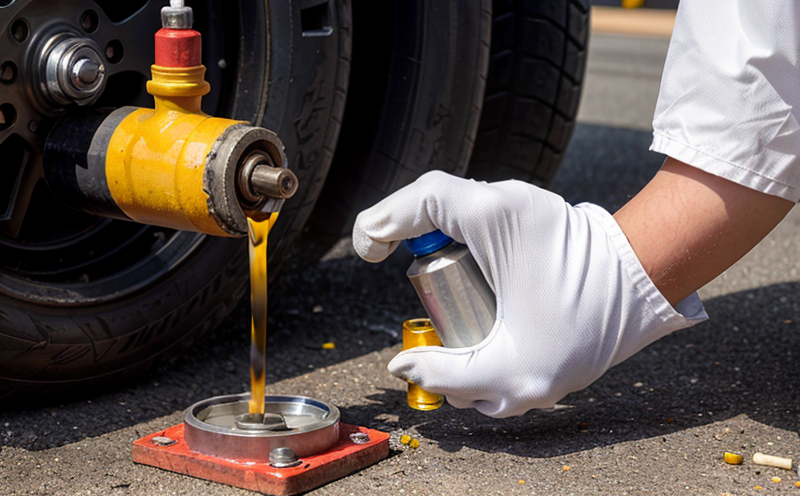ASTM D6839 Detailed Hydrocarbon Analysis by GC
The ASTM D6839 standard is a critical tool in the fuel, oil, and lubricant testing industry. This test provides detailed hydrocarbon analysis by gas chromatography (GC), offering insights into the composition and quality of fuels, oils, and lubricants used in marine environments.
Understanding the composition of these fluids is essential for ensuring that they meet the stringent requirements set forth by regulatory bodies such as ASTM. The test helps identify potential issues early on, preventing costly downtime and equipment failures. This service ensures compliance with industry standards and supports continuous quality improvement within your organization.
The process involves multiple steps: sample preparation, injection into a gas chromatograph, separation of components via temperature-controlled columns, detection, and quantification. The resulting data provides valuable information about the hydrocarbon content, including paraffins, aromatics, naphthenes, asphaltenes, and resins.
By analyzing these components, ASTM D6839 helps determine whether a fuel or lubricant is suitable for marine use. It can also identify impurities or contamination that may affect performance. For instance, high levels of certain hydrocarbons might indicate substandard manufacturing practices or storage conditions. Properly identifying and addressing such issues ensures optimal engine efficiency and prolongs equipment lifespan.
Marine environments present unique challenges due to saltwater exposure, vibration, and extreme temperatures. Ensuring that fuels, oils, and lubricants perform reliably under these conditions is crucial for safety and operational effectiveness. ASTM D6839 Detailed Hydrocarbon Analysis by GC plays a vital role in achieving this goal.
Let's take a look at the scope of this service:
Scope and Methodology
| Aspect | Description |
|---|---|
| Sample Preparation | Properly preparing the sample is crucial for accurate results. This includes degassing, filtration, and dilution as necessary. |
| Instrumentation | The analysis employs a gas chromatograph capable of separating complex hydrocarbon mixtures effectively. |
| Temperature Control | Precise temperature control is essential for consistent and reliable results during the separation process. |
The methodology strictly adheres to ASTM D6839, ensuring consistency with industry standards. This allows for accurate comparison of test results across different laboratories.
Why It Matters
Compliance with ASTM D6839 is not just about meeting regulatory requirements; it ensures that the fuel, oil, and lubricants used in marine environments are of the highest quality. This translates into safer operations, reduced maintenance costs, extended equipment life, and improved overall performance.
For quality managers and compliance officers, ensuring that all products comply with these standards is essential for maintaining a positive reputation and trust among customers. R&D engineers can use the data generated from ASTM D6839 to refine formulas and improve product formulations further.
From an operational standpoint, reliable performance of fuel, oil, and lubricants directly impacts vessel efficiency and safety. Any deviation from expected performance could lead to costly repairs or accidents at sea. By leveraging this service, organizations can maintain peak operational readiness while minimizing risks associated with substandard supplies.
Quality and Reliability Assurance
- Strict adherence to ASTM D6839 ensures consistent results.
- Regular calibration of equipment guarantees accurate measurements.
- Data validation through independent checks adds an extra layer of accuracy.
- Continuous training for personnel maintains high standards in execution.





